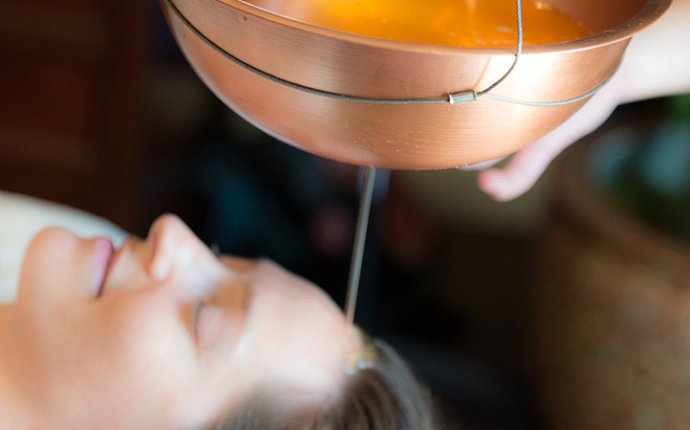
Pitta Ayurveda Mind Body Type
The Pitta dosha controls digestion, metabolism, and energy production. The primary function of Pitta is transformation. Those with a predominance of the Pitta principle have a fiery nature that manifests in both body and mind.
Qualities of Pitta:
- Hot
- Light
- Intense
- Penetrating
- Pungent
- Sharp
- Acidic
Physical Characteristics
Pittas are usually of medium size and weight. They sometimes have bright red hair, but baldness or thinning hair is also common in a Pitta. They have excellent digestion, which sometimes leads them to believe they can eat anything. They have a warm body temperature. They sleep soundly for short periods of time and have a strong sex drive. When in balance, Pittas have a lustrous complexion, perfect digestion, abundant energy, and a strong appetite. When out of balance, Pittas may suffer from skin rashes, burning sensations, peptic ulcers, excessive body heat, heartburn, and indigestion.
Emotional Characteristics
Pittas have a powerful intellect and a strong ability to concentrate. When they’re in balance, they are good decision makers, teachers, and speakers. They are precise, sharp-witted, direct, and often outspoken. Out-of-balance pittas can be short-tempered and argumentative.
When pittas are overstressed their typical response is, “What did you do wrong?”
How to Balance Pitta
Pitta is hot, sharp, sour, pungent, and penetrating. To balance pitta, make choices that are cooling, sweet, and stabilizing.
Balance rest and activity, allowing some free time everyday. Be careful not to create unnecessary time pressures for yourself.
Do not skip meals and do not wait until you are famished to eat.
Favor foods that are sweet, bitter and astringent. Also eat more cooling foods such as cucumbers, sweet fruits, and melons.
Regularly spend time in nature. Take walks in the woods and along natural bodies of water. Keep plants and fresh flowers in your home and office. Walk in the moonlight.
Perform a daily massage using cooler oils such as coconut or olive.
Favor cooler colors in your clothing and environment such as blues, greens, and silver.
Laugh a lot, every day.
Favor aromas that are cooling and sweet. Sandalwood, rose, jasmine, mint, lavender, fennel, and chamomile are recommended.
Nutritional Guidelines for Pitta
Since an excess of Pitta dosha overheats the mind and body, favor cool foods and liquids. Foods with sweet, bitter, and astringent tastes are best. Reduce foods that are pungent, salty, and sour.
Recommendations:
Dairy can help balance the heat of Pitta. This includes milk, butter, and ghee. Sour, fermented products such as yogurt, sour cream, and cheese should be used sparingly as sour tastes aggravate Pitta.
All sweeteners may be taken in moderation except molasses and honey.
The best oils to pacify Pitta are olive, sunflower, and coconut. Use less sesame, almond, and corn oil, which are more heating.
Wheat, rice, barley, and oats are the best grains to reduce Pitta. Eat less corn, rye, millet, and brown rice.
Stick to sweeter fruits such as grapes, melons, cherries, coconuts, avocados, mangoes, pomegranates, fully ripe pineapples, oranges, and plums.
Reduce sour fruits such as grapefruits, apricots, and berries.
The vegetables to favor are asparagus, cucumbers, potatoes, sweet potatoes, green leafy vegetables, pumpkins, broccoli, cauliflower, celery, okra, lettuce, green beans, and zucchini.
The vegetables to avoid include tomatoes, hot peppers, carrots, beets, eggplant, onions, garlic, radishes, and spinach.
Pitta types should use seasonings that are soothing and cooling. These include coriander, cilantro, cardamom, saffron, and fennel. Hotter spices such as ginger, cumin, black pepper, fenugreek, clove, salt, and mustard seed should be used sparingly. Very hot seasonings such as chili peppers, and cayenne are best avoided. Chew on fennel seeds after meals to cool down acid in the stomach.
For non-vegetarians, chicken, pheasant and turkey are preferable while beef, seafood, and eggs increase Pitta and should be minimized.
*Editor’s Note: The information in this article is intended for your educational use only; does not necessarily reflect the opinions of the Chopra Center's Mind-Body Medical Group; and is not a substitute for professional medical advice, diagnosis, or treatment. Always seek the advice of your physician or other qualified health providers with any questions you may have regarding a medical condition and before undertaking any diet, supplement, fitness, or other health program.














